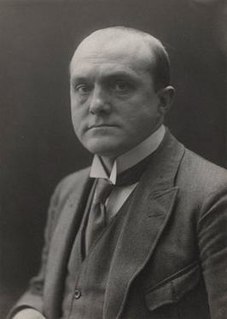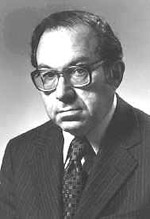Top 366 Nazi Quotes & Sayings - Page 7
Explore popular Nazi quotes.
Last updated on November 22, 2024.
The world is rather shot to pieces [end of World War II - 1945], but the spectators climb out of their caves and pretend to have again become normal and customary humans who ask each other's pardon instead of eating one another or sucking each other's blood. The entertaining folly of war evaporates, distinguished boredom sits down again on the dignified old overstuffed chairs.. .May I report about myself that I have had a truly grotesque time, brim-full with work, Nazi persecutions, bombs, hunger, and again and again work - in spite of everything [a. o. using his bed sheets as canvas for the new paintings].
One of the most intensely unlikeable figures of the twentieth century, fanatical anti-Semite, enemy of labour unions and proud recipient of medals from Nazi Germany, where Hitler held him in veneration, Henry Ford was also an employer who paid his workers more than his competitors, an innovator who pioneered the assembly line and a visionary whose part in the creation of the twentieth century was so great that Aldous Huxley, in his Brave New World, prefigured a society whose calendar was divided into BF and AF-Before Ford and After Ford.
Dictatorship nations are outlaws. Any free nation had the right to invade Nazi Germany and, today, has the right to invade Soviet Russia, Cuba, or any other slave pen. Whether a free nation chooses to do so or not is a matter of its own self-interest, not of respect for the nonexistent 'rights' of gang rulers. It is not a free nation's duty to liberate other nations at the price of self-sacrifice, but a free nation has the right to do it, when and if it so chooses.
As the Nazi regime developed over the years, the whole structure of decision-making was changed. At first there were laws. Then there were decrees implementing laws. Then a law was made saying, ‘There shall be no laws.’ Then there were orders and directives that were written down, but still published in ministerial gazettes. Then there was government by announcement; orders appeared in newspapers. Then there were the quiet orders, the orders that were not published, that were within the bureaucracy, that were oral. And finally, there were no orders at all. Everybody knew what he had to do.
I was seduced by the nouvelle vague, because it was really reinventing everything. And the Italian cinema that one would see in the theaters in the late '50s, early '60s was Italian comedy, Italian style, which, to me, was like the end of neo-realism. I think cinema all over the world was influenced by it, which was Italy finding its freedom at the end of fascism, the end of the Nazi invasion. It was a kind of incredible energy. Then, late '50s, early '60s, the neo-realism lost its great energy and became comedy.
I think in many ways, the Spanish Civil War was the first battle of World War II. After all, where else in the world at this point did you have Americans in uniform who were being bombed by Nazi planes four years before the U.S. entered World War II? Hitler and Mussolini jumped in on the side of Francisco Franco and his Spanish nationalists, sent them vast amounts of military aid, airplanes, tanks - and Mussolini sent 80,000 ground troops as well - because they wanted a sympathetic ally in power. So I think it really was the opening act of World War II.





